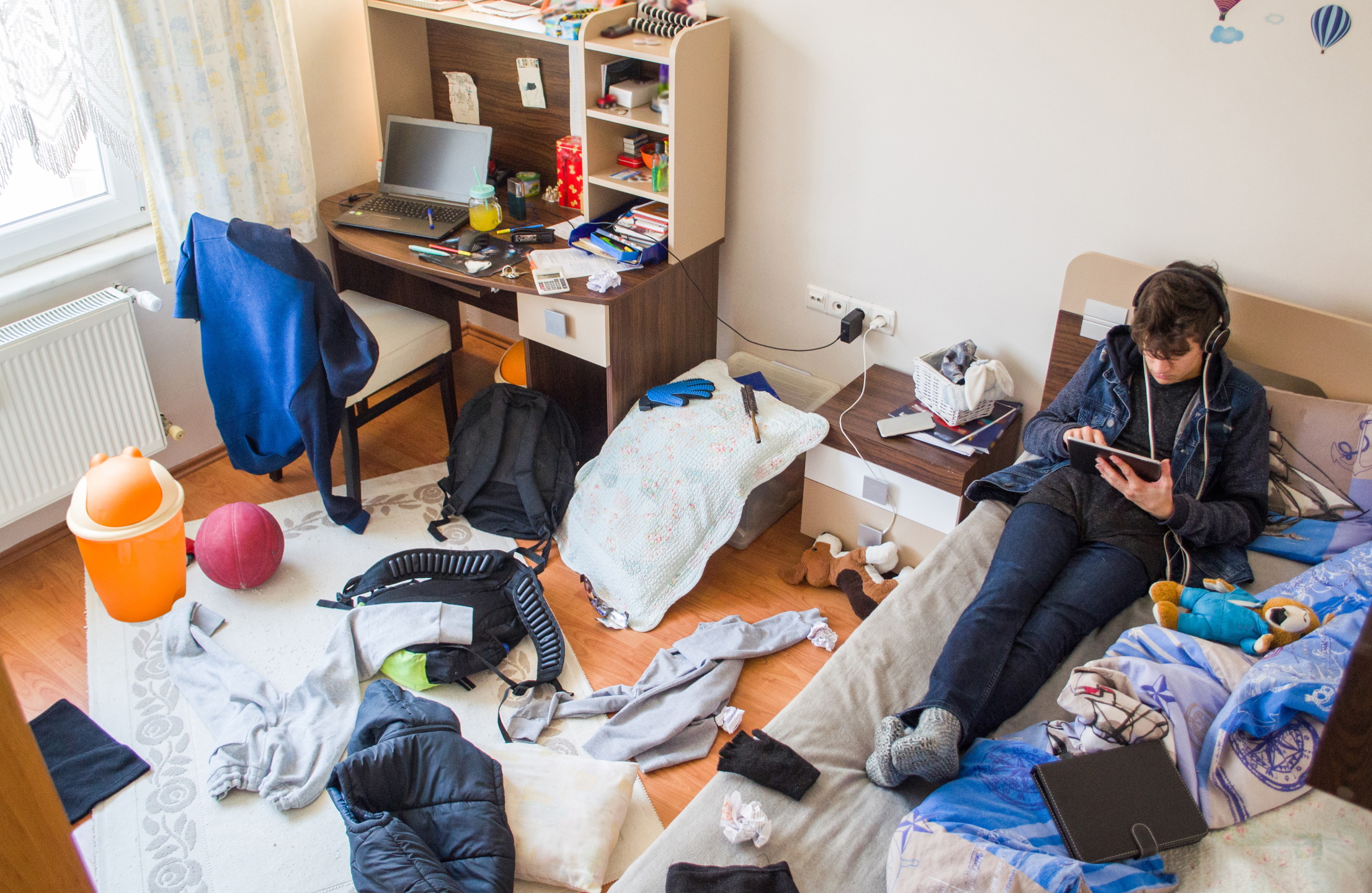How to manage a teenager's bedroom

The only thing harder than being a teenager is being the parent of a teenager. Yet some adolescent behaviours have specific drivers, despite their seeming illogicality. Hormonal outbursts and slovenliness might feel intolerable from a parental perspective, but they’re often grounded in deep-rooted instinct and the battle for personal identity.
A common flashpoint involves a teenage child’s bedroom. From piles of unwashed clothing to permanently-drawn curtains, these can be intimidating places for houseproud parents who are brave enough to pass the No Entry sign typically attached to the door. Happily, a degree of tolerance and some gentle diplomacy can go a long way towards managing what often appears to be self-inflicted squalor.
Age shall not weary them
After the pre-school years, adolescence is the most intensive developmental period in anyone’s life. Puberty triggers a tsunami of emotional and physical changes, as well as necessitating far more sleep than was previously the case. As they glance between the ceiling and the unattended cereal bowl, despairing parents should be aware teenagers typically need ten hours of sleep every night. However, since they’ve probably been up ‘til 3am playing computer games or venting on social media, early starts are a common bone of contention.
This insatiable need for sleep partly explains why curtains and blinds tend to remain drawn in a teenager’s bedroom, with windows also firmly closed. Air the room whenever they’re out, flinging doors, windows and wardrobes open to maximise airflow. Avoid lighting scented candles or anything that makes the room smell alien – they’ll just try harder to obliterate these ‘strange’ aromas when they return.
Another fine mess
While airing a room, resist the temptation to tidy up. Teenagers are at an awkward stage when they’re expected to be mature without being granted many adult freedoms, and their rooms are often the only environment they can truly control. Colonising it with old magazines and abandoned clothing represents a modest declaration of independence, and should be indulged providing the clutter doesn’t extend to insanitary items like discarded food wrappers. Provide cleaning receptacles and materials but don’t insist on their use, though bribery may be worth considering.
Cleaning up after your child is counterproductive in several regards. Firstly, deciding how their personal space should look on their behalf removes a key plank of self-determination. Secondly, it implies they don’t have to tidy up because you’ll eventually do it for them. Thirdly, it could be construed as an invasion of privacy, which will be bitterly resented at this secretive and insecure age. Kids might secretly feel overwhelmed by the scale of the task, so a polite offer of parental assistance could be welcomed – but accept a refusal with good grace
Establish best practice elsewhere
If you agree that a teenager’s bedroom is off-limits, it’s reasonable to ask for their respect and cooperation elsewhere in the house. Actively discourage slug trails of belongings from the front door to the fridge – the hallway isn’t their fiefdom, in the same way their bedroom isn’t yours. Basic housekeeping rules teach children how to be organised, as well as reducing stress levels the next day when looking for their possessions.
Normalising cleaning routines and everything-in-its-place tidiness outside the bedroom should eventually percolate into it once hormonal chaos diminishes. Messiness is a natural developmental stage, often abruptly ended by a new sweetheart or hobby. Until then, a non-confrontational attitude to messy bedrooms will avoid unwinnable arguments, while ensuring your kids have the knowledge and skills to be tidy and organised once they’re ready. They won’t live with you forever, and you’ll miss them when they’re gone – discarded socks and all.
Back to Latest Posts




